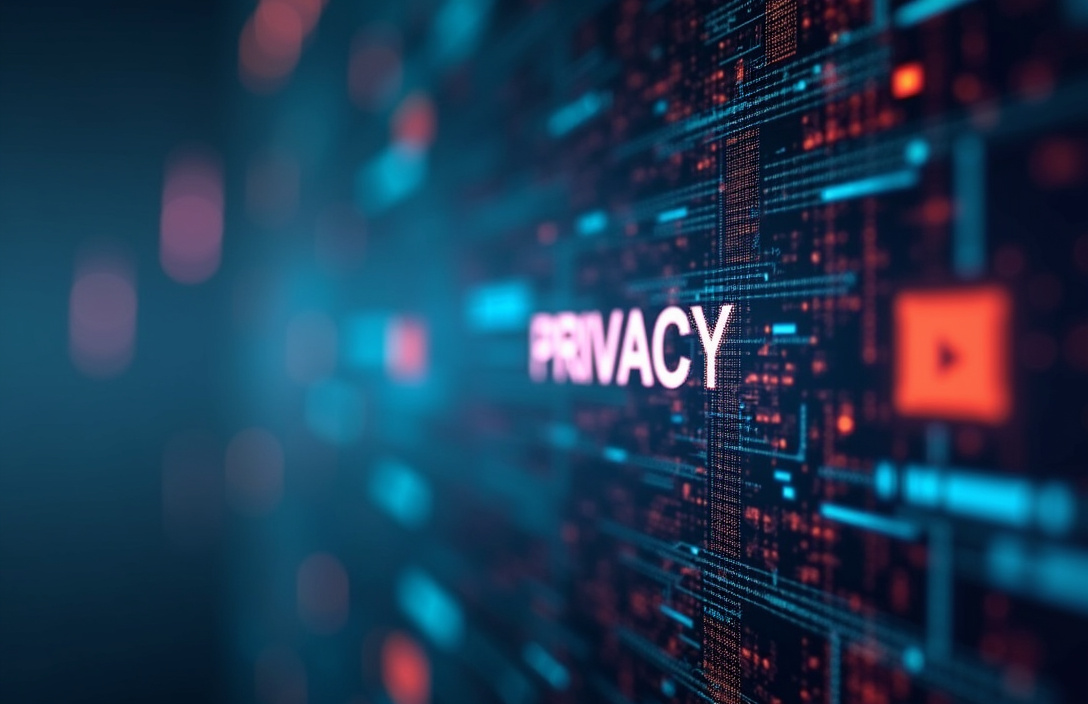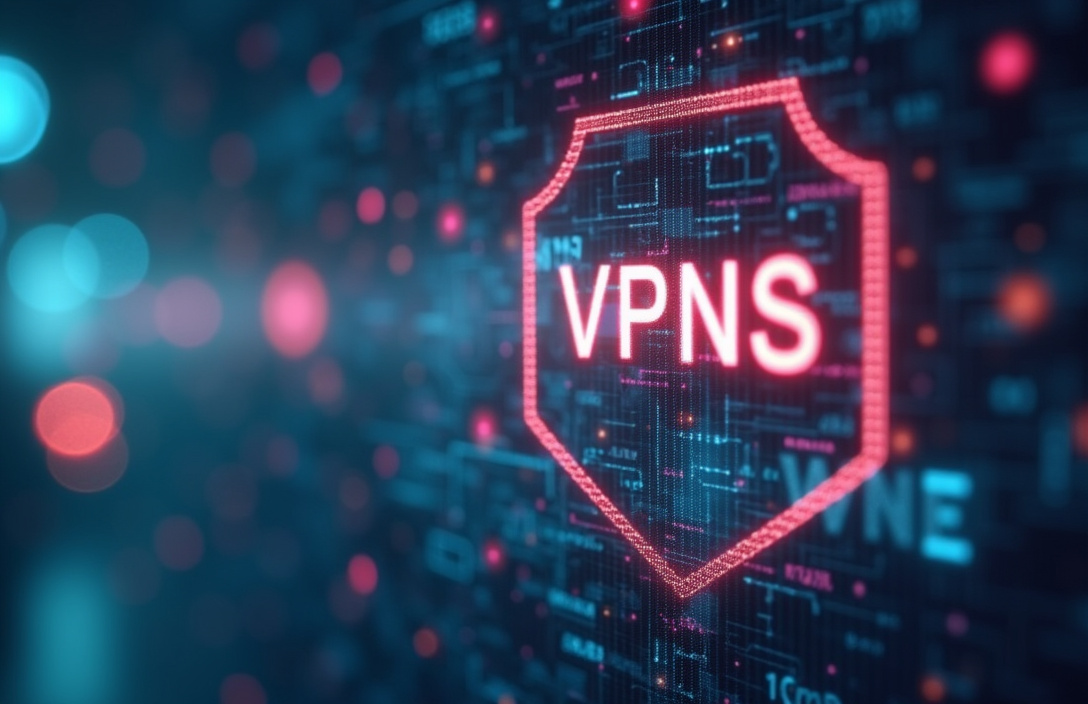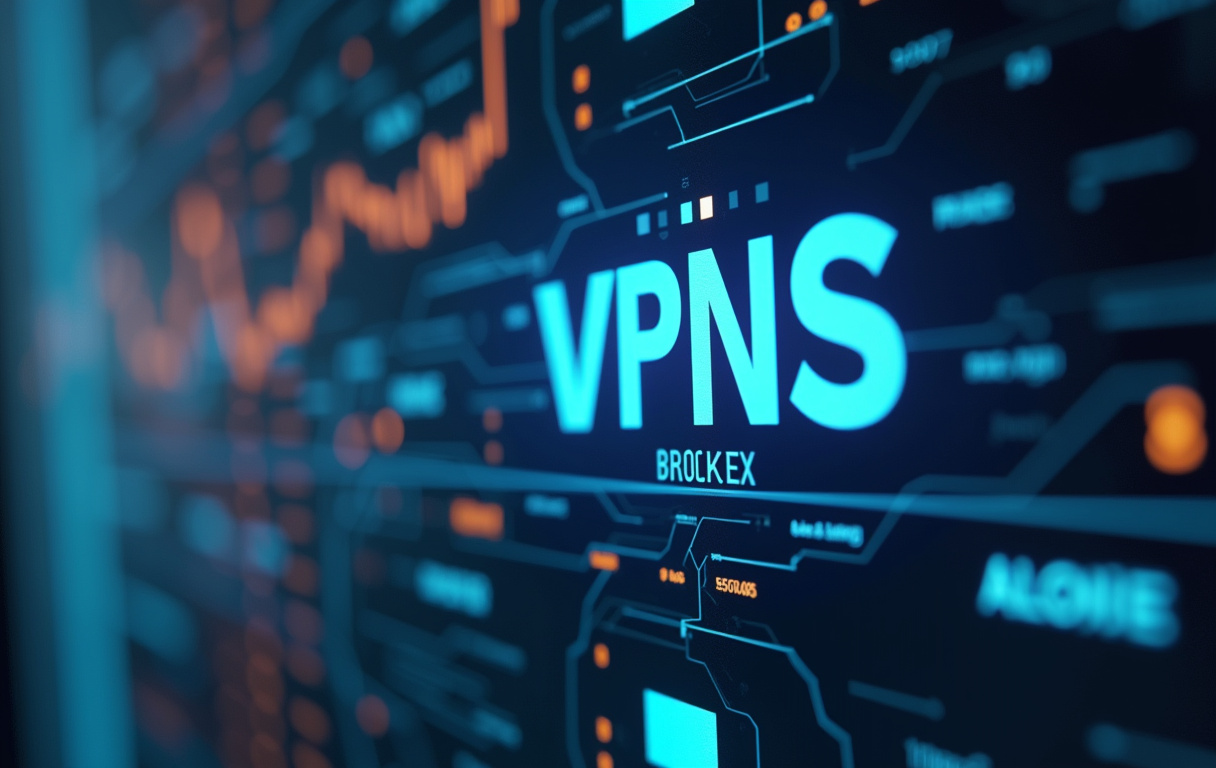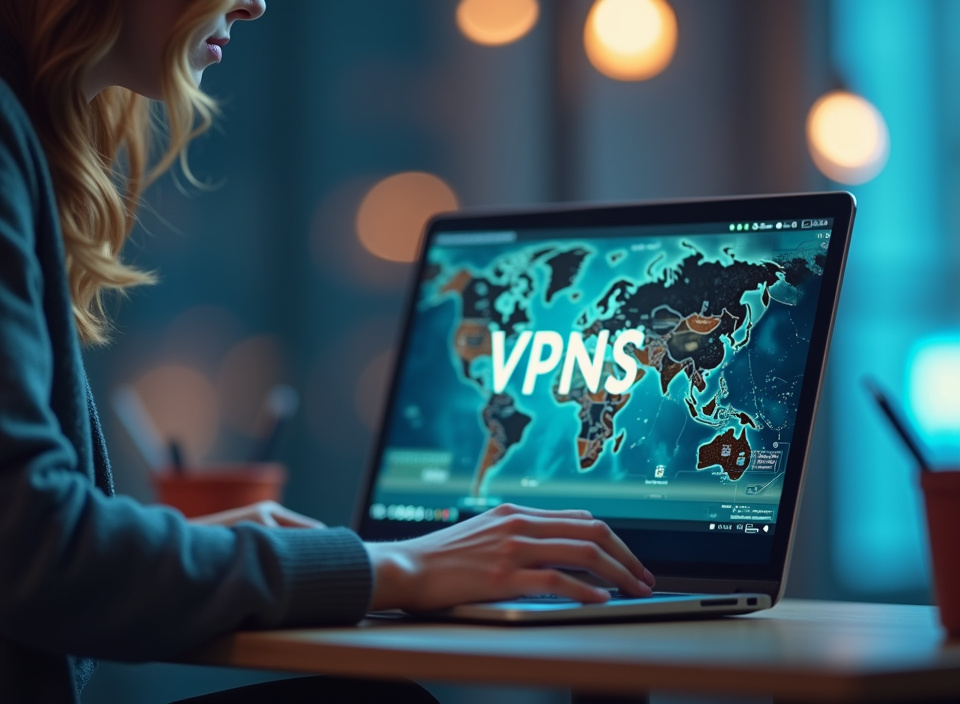VPNs for Online Freelance Marketplaces: Securing Freelancer Connections
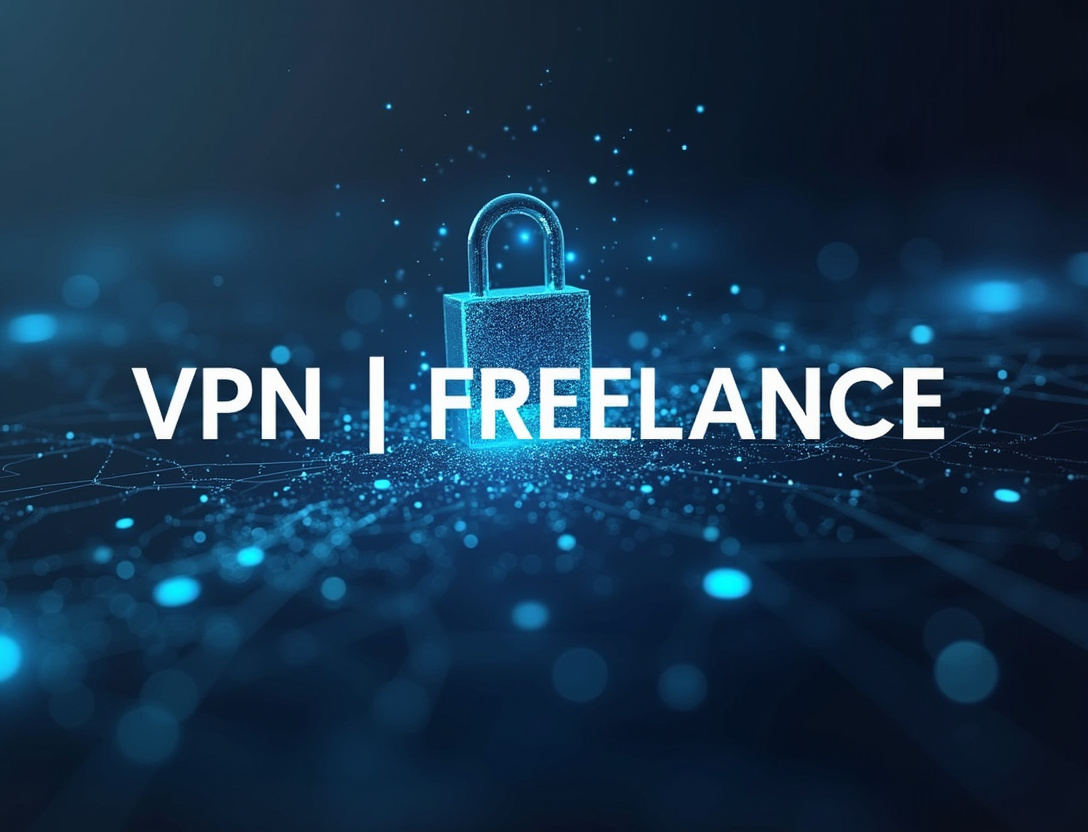
Table of Contents
Understanding the Freelance Landscape and its Security Challenges
The digital landscape has transformed the world of work, giving rise to a vibrant freelance economy. Online freelance marketplaces now serve as dynamic hubs, connecting skilled professionals with clients seeking specific expertise. This shift, while offering unprecedented flexibility and opportunity, introduces unique cybersecurity challenges for both freelancers and clients.
Freelancers, often working remotely from diverse locations and relying on varied network infrastructures, find themselves particularly vulnerable to data breaches, identity theft, network attacks, and the exposure of sensitive project information. The inherent risks associated with public Wi-Fi networks, coupled with the potential for malicious actors to intercept data transmissions, create a necessity for robust security measures. A Virtual Private Network (VPN) emerges as a critical and essential tool for mitigating these risks, providing a secure, encrypted tunnel for internet traffic, and safeguarding sensitive communications.
Understanding the specific threats prevalent in the freelance marketplace environment is paramount to appreciating the value of a VPN in securing freelancer connections and the security of client assets. The uncontrolled transmission of confidential client data, project plans, and financial information can result in significant, dire consequences including financial losses, reputational damage, legal liabilities, and the loss of client trust. The anonymity offered by a VPN helps to protect the freelancer's actual IP address, makes it significantly more difficult for malicious actors to monitor their online activity, or discover their physical location by hiding their location by masking the IP address.
This is particularly important for freelancers who live or operate in countries with strict internet censorship or surveillance policies, where the need to remain anonymous can be important for personal safety or freedom. By masking their IP address and encrypting their data, freelancers can maintain a greater degree of privacy and freedom, safeguarding their personal information and freedom of access to information, and protecting themselves from potential harassment, intimidation, or discrimination. Furthermore, the increasing sophistication of cyberattacks targeting insecure network connections makes a proactive and dynamic approach to security essential.
Relying exclusively on the security measures implemented by the freelance marketplace platform itself may not be enough, as these platforms are also potential targets and are subject to cyber threats. A VPN offers an additional, independent layer of customized security beyond the platform's infrastructure, providing a personalized defensive system against evolving threats. The use of a VPN by freelancers also promotes a more credible, professional image, demonstrating commitment to data security and strict maintenance of client confidentiality.
By adopting a proactive approach to protecting sensitive information, freelancers will stand out and will build exceptional trust with new, existing, and potential clients, leading to opportunities with long-term potential and establishing and building a reputation anchored on reliability, responsibility and trustworthiness. In this context, implementing a VPN is more than just a technical precaution, it's a deliberate investment in the freelancer's brand promise and professional success. By conscientiously addressing security and privacy issues, freelancers will confidently engage within the online marketplace, focusing on high-quality, excellent work without compromising their safety or the integrity of client data.
This commitment to cybersecurity develops and strengthens vital long-term relationships and opens doors to new opportunities. Implementing a strong VPN should become standard practice for all professional freelancers that want to guarantee a safe digital work environment and protect their income. With a secure network connection and confidential and encrypted data exchange, freelancers can focus on their work secure in the knowledge that their business and clients are safe from cyber threats.
How VPNs Fortify Freelancer Connections: Core Functionality & Benefits
The core functionality of a VPN lies in its ability to create a secure and encrypted connection linking the freelancer’s device to a remote VPN server. This encrypted pathway acts as a reliable shield, protecting data from interception, preventing eavesdropping, and blocking unauthorized access by malicious actors. Public Wi-Fi networks, commonly found everywhere from coffee shops to airports, often lack adequate security protocols, making them prime targets for cyberattacks.
When a freelancer connects to an unsecured public Wi-Fi network, they are potentially exposing their sensitive data, potentially leading to the theft of valuable information. Man-in-the-middle attacks are greatly facilitated by the lack of security on public Wi-Fi. These attacks actively intercept data transmissions exchanged between the freelancer's device and the website or application they are using.
A VPN is built to encrypt this data stream, effectively transforming it into an unreadable format for potential interceptors. Even if a hacker succeeds in accessing the data while in transit, all they will find is unintelligible encrypted code, which reliably protects sensitive information, including login credentials for various accounts, confidential financial details, and important project communications. As well as its encryption capabilities, a VPN actively masks the freelancer's true IP address with one from its own VPN server, disguising the freelancer's actual location.
This masking of online activity makes it harder to trace the freelancer's movements or target them personally. This particular feature is extremely valuable to freelancers who value privacy in particular, and who take steps to prevent being easily tracked or identified by malicious actors. Specific VPN services offer extra security measures, for example a “kill switch.” This automatically severs the internet connection if the VPN connection drops unexpectedly.
It will act immediately to prevent any unencrypted information from being sent across openly on the internet, so sensitive data remains perfectly protected at all times, without any chance of exposure. Privacy policies are an extremely important consideration. Many reputable VPN providers strictly adhere to a log-free policy, guaranteeing that they do not track or store any information related to individual user online activities.
This guarantee offers an additional layer of protection, confirming that overall privacy rights are being respected. When making the decision to select a VPN service, freelancers must prioritize providers offering a high standard of encryption, e.g. AES 256 bit, and a wide and flexible selection of server locations to choose from.
Access to a variety of servers located in different geographical regions can be invaluable when accessing region-locked content or getting around internet censorship in some areas. Freelancers should carefully check and thoroughly understand the individual VPN provider's privacy policies, to make sure it aligns with their own unique expectations for privacy and security. It should be noted that the standards of protection offered by VPN services are wide ranging.
Certain free services might gather and then sell user data on to third parties, which entirely undermines the original purpose of using a VPN to protect privacy. Opting for a paid VPN option from a legitimate provider is usually the better option, since this offers higher levels of protection, improved reliability, and a stronger guarantee to protect your privacy. Adopting consistent use of a VPN for routine freelancing duties offers essential protection against numerous kinds of cyberattack, while providing protection for sensitive exchanges through secure connections ensuring safe data transmission that protects freelancers’ confidential information from malicious actors.
Project data protection
is a foundational concern for freelancers, especially those who regularly manage confidential or projects requiring high levels of data security. A VPN is critical for safeguarding all stages of the project lifecycle, providing an encrypted channel that fortifies project files, encrypts client communications, and protects all forms of sensitive information involved in the project from unauthorized access. Freelancers are increasingly sharing cloud based storage options such as Google Drive, Dropbox, and OneDrive with ease.
Although these services offer convenience and improved accessibility. The use of shared digital storage also increased the potential for various security dangers. Should a freelancer’s link to cloud storage become unsecure, data is then exposed to a level of interception and access from external threat actors.
A VPN is designed to encrypt data transfers occurring between freelancer’s devices and cloud servers so that files are protected whether or not main connection becomes compromised. Further, a large number of freelancers exchange critical details with clients by using a variety of digital mediums, including email and instant messaging applications . These channels can be viewed easily without proper and advanced security measures.
A VPN guarantees that all data transmitted online including messaging and email communications is encrypted, creating a secured encrypted communications channel for all confidential information and data exchange. As well as guaranteeing protection of files while stored in transport, a VPN allows professionals to follow best security practices, reducing probable data breaches. The use of a secured VPN link guarantees that project details such as code, client data, and strategic plans are adequately secured from external access that is very important when managing very sensitive projects.
Freelancers working in different networks may be required to comply with local laws such as The General Data Protection Regulation or the The California Consumer Privacy Act, which enforce laws protecting personal information and demand strict regulation to protect global user data. When using a VPN, freelancers can comply more completely with rules on international level. Guaranteeing that their data transfers adhere to privacy guidelines particularly when working with international stakeholders.
A VPN is valuable while accessing freelance marketplace platforms themselves. While they provide security options; these may not efficiently resolve various vulnerabilities coming from compromised external networks. A secured, encrypted VPN protects login details and payment information from hackers enhancing security.
In addition, using a VPN helps freelancers develop a greater culture of cyber security, promoting strict rules of data governance for daily activities. This covers adopting improved password management approaches. Performing multi-factor authentication procedures, and actively checking for suspicious file transfers.
Therefore, using VPN technology goes beyond just technical application, resulting in extensive upgrades to data protection. Freelancers may display trust and assurance in their clients building lasting professional partnerships grounded on openness and data safety by effectively treating issues of data integrity proactively. Implementing a secured safety framework by combining complete usage from the very start of using VPN during freelancing work creates critical insurance against different cyber risks, assuring data is private so sensitive exchanges can happen safely as professionals work to offer improved customer experience.
Stay Updated
Get the latest VPN news, tips, and exclusive deals to your inbox.

